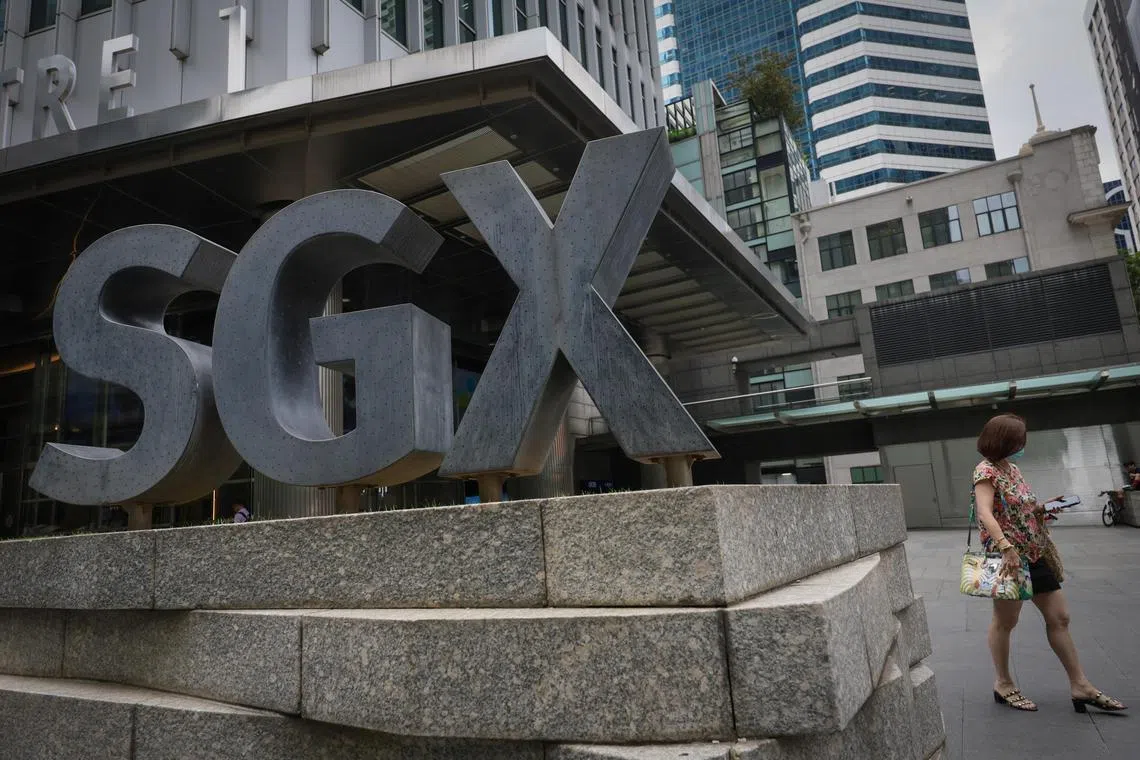Singapore stock rally likely to continue as dividend plays shine
Sign up now: Get ST's newsletters delivered to your inbox

The Straits Times Index has risen nearly 7 per cent in 2024, helped by gains in banks amid strong dividend expectations.
PHOTO: ST FILE
Singapore – Singapore stocks’ best rally in years may have legs as potential US interest rate cuts burnish the appeal of the high-yielding market.
Growing confidence that US interest rates have peaked may drive investors to Singapore’s high-yielding real estate investment trusts (Reits) and bank shares. Traders are betting that the US Federal Reserve will begin easing policy in September.
The Straits Times Index (STI) has risen nearly 7 per cent in 2024, helped by gains in banks amid strong dividend expectations. Brokerages including UBS Group and JPMorgan Chase & Co recently upgraded Singapore’s equities to neutral as valuations have become less stretched while earnings momentum in index heavyweights remained solid.
“The attractiveness of the Singapore equity market is the currency and dividend yield,” said Mr Paul Chew, head of research at Phillip Securities. “Slowing global growth and potential for interest rate cuts will see investors rotate to a lower-beta country such as Singapore.”
The benchmark STI provides yields of more than 5 per cent, which is higher than what most regional markets offer, according to Bloomberg-compiled data. Valuations are still reasonable even after the recent rally, with the gauge trading at 10.9 times forward earnings, below its five-year average of 12.3 times. Forward earnings are an estimate of the next period’s earnings of a company, usually till the completion of the current fiscal year and sometimes to the following fiscal year.
While interest rate cuts may weigh on banks’ margins, analysts said shares of lenders can continue to outperform if policy easing stimulates wealth management fees and loans growth.
Given “visibility that the net interest margin is at least going to hold until the end of the year”, dividend payouts by Singapore banks look sustainable, said Mr Chen Zhikai, head of Asian equities at BNP Paribas Asset Management. Lenders are also “sitting on excess capital”.
Lower borrowing costs also bode well for the country’s real estate sector, while a slump in the shares of Singapore’s Reits over the past few years is making them more attractive.
To be sure, Singapore will not be spared in an environment of rising geopolitical tension. A potential victory for Donald Trump in the upcoming US election could pose significant risks for S-Reits and manufacturing firms that derive some revenue from China.
The yield angle is “still working out quite well” for Singapore stocks, said Mr Chen, adding that the Republic is one of the countries “seen as a stable proxy” for the region and some international funds are looking to expand their exposure in this market. BLOOMBERG


